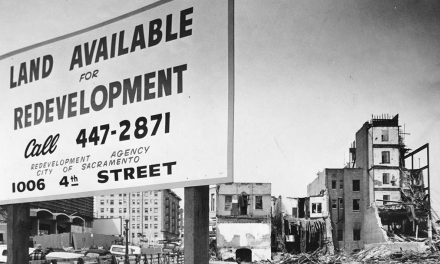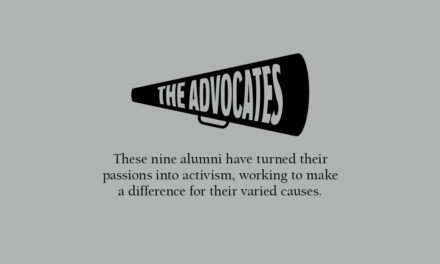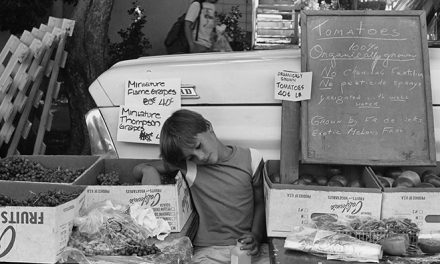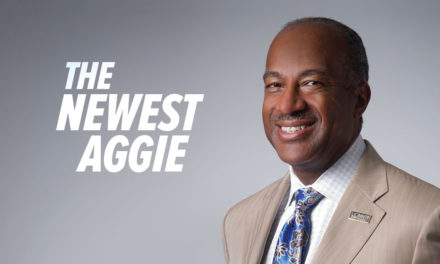In mid-March, Chancellor Gary S. May announced that spring quarter classes would be moved online, due to the growing concerns regarding COVID-19. He had previously said that winter quarter finals would be held remotely, to ensure the safety and health of UC Davis students.
Spring break became an important time to make plans. Some students remained in town, due to canceled vacations, while others decided to move home. Dorm dwellers were given the option of moving out in exchange for prorated refunds. Today, residence and dining halls remain open for the students who stayed, with modified hours and safety regulations in place.
Recently, May announced that UC Davis would host a virtual commencement celebration for the class of 2020 in June and re-evaluate the possibility of an in-person ceremony at a later date, likely in December.
For students across the globe, the past few weeks have been unprecedented, testing resilience and response to adversity. These events have also caused great disappointment. At UC Davis, May has provided weekly updates and the campus is still at work with essential activity.
Here, four students, of varied backgrounds, discuss the impacts of a new learning experience during a rapidly evolving time.
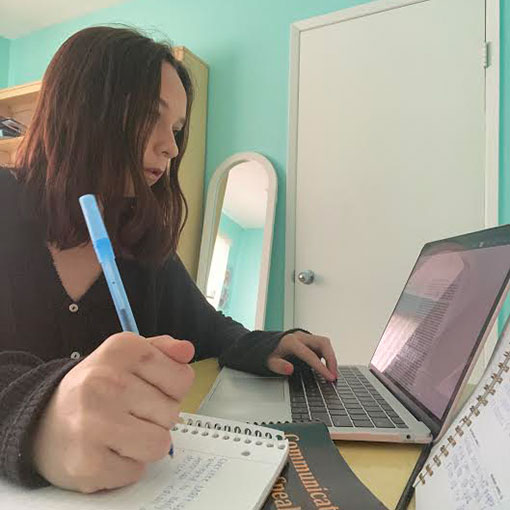
Aleshia Rose works from home in San Diego. (Courtesy)
Aleshia Rose, freshman
Moving out of the dorms was a last-minute decision for Aleshia Rose. A first-year, she was finishing her shift at the Gunrock Gaming on campus when her parents called and asked her to bring home as much of her belongings as possible.
Suddenly, Rose wasn’t coming back to Davis after spring break. “I had to pack my entire dorm room up in the middle of the night and then fly home at 8 a.m. the next day,” the San Diego native explained. “It was a huge saving to move out, and my family didn’t want to risk having to drive up there if I stayed and things got worse.”
Now, Rose is adjusting to online classes — and enjoying them. “Most of them are live, which makes it easier. The recorded lectures are harder because I have to discipline myself,” she said. “But a lot of my professors have set up Q&As over Zoom to help.”
Rose is majoring in communication and is currently taking 17 units. “I’m glad I’m taking 17 units; I wasn’t before. But now that I’m home, I have nothing else to do.”
Dorm life to home life has been a transition, she said. “I hardly got to say goodbye to anyone before I left,” said Rose. “A lot of my friends had already left for spring break. One of my friends helped me pack up my room, and then that was it.”
She said she is trying to maintain some sense of normal life by keeping in touch with her friends. “I try to FaceTime someone at least once a day. That way I’m still being social.”
Looking forward, Rose said she is most concerned about what fall quarter will look like. “I’m worried about the campus being closed in the fall. I have a lease and an apartment, and I rely on paying for it with my on-campus job,” she explained. Gunrock Gaming is currently closed. Rose and her coworkers were paid emergency leave, but are unsure when they will be able to work again. Summer jobs have also been interrupted. “I had my dream summer job lined up and I don’t think that’s going to happen anymore.”
Reflecting on her time spent in the dorms, Rose said she has good memories. “The last week before online classes were announced, everyone had a gut feeling classes would move online. So we all tried to make the most of it. We’d hang out in the common room until 3 a.m., go out and spend all our Aggie Cash for ‘The Bachelor’ finale. I loved my floor. I’m living with people from my floor next year,” she said. “I don’t feel like I missed out on anything, but it would have been nice to have another quarter. I tried to make the absolute most of everything.”
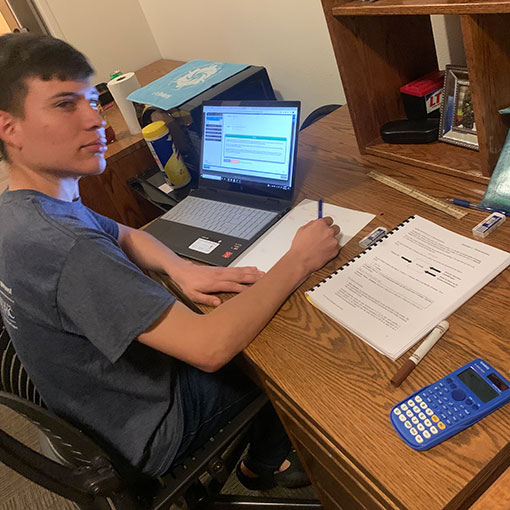
Roberto Rodriguez Ibarra studies in his dorm room on campus. (Courtesy)
Roberto Rodriguez Ibarra, freshman
Roberto Rodriguez Ibarra is the only person living on his dorm floor in Pine Hall. “I stayed at UC Davis because I didn’t have anywhere else to go,” explained Ibarra. “I’m a homeless student.”
The San Diego native has been living on his own since his junior year of high school. In fact, he graduated from high school while living in a homeless shelter. Ibarra’s experiences greatly influenced his decision to come to UC Davis. “There was a survey done a few years ago before I was picking colleges, and UC Davis was ranked second in supporting homeless youth,” he said.
Now at UC Davis, the biochemistry and molecular biology major has become involved in student government and was appointed a senator position in the winter ASUCD election. “It was a tough race, but I got it,” he said. Ibarra’s platform was centered on resources for homeless and first-generation students and food security issues.
The transition to online classes has been challenging, he said. Ibarra had to drop a math course, but has found his professors to be supportive and responsive. “They’ll email me if I miss a Zoom lecture or ask if I need help.”
He is now enrolled in 15 units, a more manageable workload than his original 24. Ibarra was given a loaner laptop from UC Davis, through a new program that ensures that students without laptops will have the ability to learn remotely.
Although much of daily life has moved online, Ibarra is remaining actively involved in the ASUCD student body, through Zoom calls and emails. “Senate and school keep me busy,” he said.
And he’s adjusting to new dining standards. Due to social distancing regulations, on-campus dining commons are now to-go only. And meals require more planning. “We were given 200 swipes for the quarter instead of the daily meal plan. If you want more, you have to use another swipe,” he explained. “Right now, we make lines and stay 6 feet apart. They give us take-out boxes.”
Cara van Niekerk, junior
For Cara van Niekerk, remote instruction means remaining in Davis for the foreseeable future.
The Cape Town, South Africa, native chose to stay in Davis, as South Africa is no longer allowing its own citizens to return from high-risk countries including the U.S. without medical screenings and quarantines.
“If I get stuck outside of the United States for more than five months out of the year, then I lose my student visa,” she said. “So I had to make the decision to stay in Davis. Being home with my family would’ve meant dropping out.”
Van Niekerk, a managerial economics major, has both live and prerecorded classes. “I prefer having my economics class recorded because I can watch them at my own pace. But I’m also taking a management class, and a huge part of management classes are group work and engagement in discussions. Those lectures are three hours long.” Van Niekerk is currently enrolled in 16 units.
Due to social isolation guidelines, van Niekerk’s social life looks vastly different than it did just a few weeks ago. “It’s difficult for me to stay positive when there is no work-life balance,” she said. “I think I perform better when I can actually go out of my house and see my friends and have a break from school. It’s hard because now my bed and my study space are the same place.”
Realistically, van Niekerk said she will not be able to return home until next winter break, the longest time she has gone without seeing her family. Her summer plans have changed, too. “I was in the process of applying to summer internships, but most places have stopped hiring completely now.”
These days, van Niekerk is finding solace in the simpler things: morning cups of coffee in her backyard and fostering dogs from local animal shelter Hearts For Paws.
“Due to coronavirus, a lot of animal shelters in the state were closing and either had to find homes or put down these dogs. So I applied to foster, and it was the best decision,” she explained. “I feel like there isn’t much I can do right now to help the world, but this makes me feel like I’m doing my part.”
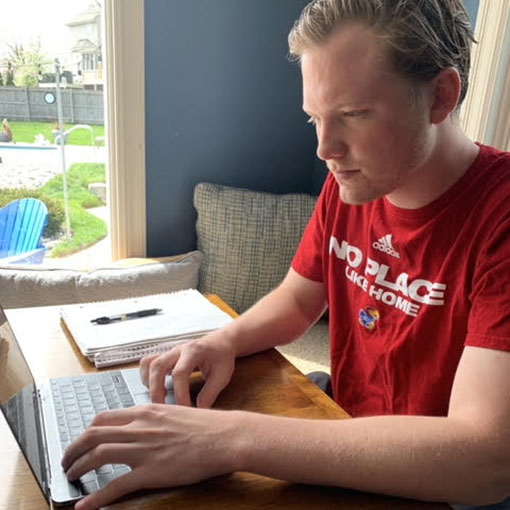
Sam Horst is back home in Kansas for the rest of his senior year. (Courtesy)
Sam Horst, senior
When Sam Horst flew home for spring break, he planned to return a week later. Now, the genetics major remains in his hometown of Olathe, Kansas, tackling online classes during his final quarter at UC Davis.
Online classes have been an adjustment, he said. Horst, who only needs seven more units to graduate, is part-time this quarter.
“I think it’s been a learning experience for professors, TAs and students alike,” he said. “Everybody is trying their best. It’s hard because a lot of the time you have to make your own schedule, and it’s a lot harder to stay motivated.”
Learning remotely impacts more than his academics, he said. Horst has worked in Bruce Draper’s lab in the College of Biological Sciences since his sophomore year. There, he works with the zebrafish model organism, studying germline stem cells in the female ovary and the cell signaling that takes place within the ovary. The laboratory is currently closed.
Much of his social life has changed, too. Horst, an active member of a fraternity Pi Kappa Alpha, admits to missing the normalcy of daily life.
The sudden change to senior year has had a deep impact. “College is kind of like the last chance you get to not fully be an adult yet. And that’s over now without any warning. People didn’t have a chance to say goodbye and that’s sad because everyone is just going to jump into their real lives after this.”
The recent announcement of a virtual graduation celebration was expected but also disappointing. “With an in-person graduation ceremony there is a sense of comradery, watching each other succeed,” he said. “I hope we get a chance to do that.”

